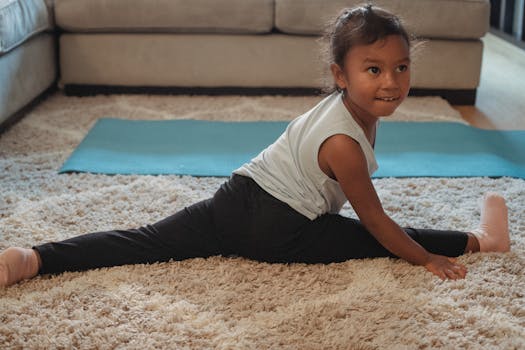Unlocking Happiness: The Mental Health Benefits of Regular Physical Activity
Takeaways:
- Regular physical activity can significantly improve mood and reduce anxiety.
- Exercise promotes the release of endorphins, which can create feelings of happiness.
- Engaging in consistent physical activity can enhance self-esteem and body image.
- It’s a great way to connect with others, fostering social support.
- Even small changes in routine can lead to big mental health benefits.
Hey there! Let’s talk about something that’s been a game-changer for me: the mental health benefits of regular physical activity. If you’ve ever felt stressed, anxious, or just a bit off, you might be surprised at how much a little movement can help. I mean, who doesn’t feel better after a brisk walk or a fun dance session? Let’s dive into the nitty-gritty of how getting your body moving can uplift your mind!
Why Exercise Feels Good
First things first, let’s chat about those endorphins — you know, the feel-good hormones. When you engage in physical activity, your body releases these little gems, and trust me, they work wonders. I remember one particularly tough day when I was feeling overwhelmed. I decided to hit the pavement for a jog. By the time I got back home, I felt like I could conquer the world! That’s the power of exercise.
Studies have shown that regular physical activity can reduce symptoms of depression and anxiety significantly. It’s not just about the physical benefits; it’s about how those endorphins lift your mood and bring a sense of calm. So, if you’re feeling a bit down, just put on your sneakers and get moving!
Building Confidence Through Movement
Let’s be real for a second — many of us struggle with self-esteem issues. I’ve been there. But one of the best ways to boost your confidence is through exercise. Whether you’re lifting weights or practicing yoga, accomplishing physical goals can translate into a greater sense of self-worth.
For instance, when I started attending a weekly spin class, I never thought I’d be able to keep up. But after a few sessions, I noticed I was not just keeping up; I was actually enjoying it! Each class made me feel stronger and more capable. This newfound strength carried over into other areas of my life. It’s a fantastic cycle: the more you exercise, the more confident you become!
Connecting with Others
Let’s not forget the social aspect of physical activity. Whether it’s joining a team, attending a fitness class, or simply going for a hike with friends, exercise can be a wonderful way to connect with others. I’ve met some incredible people through my local running club, and these friendships have been a huge boost to my mental health.
Having a support system is essential for mental wellbeing. When you share your fitness journey with others, you create a sense of community. Plus, it’s always more fun to sweat it out together — trust me, laughter during a workout is the best remedy for stress!
Small Steps, Big Changes
Now, I know what you might be thinking: “I don’t have time for a daily workout!” But here’s the thing — you don’t have to run a marathon or spend hours at the gym to reap the benefits of physical activity. Even a 10-minute walk or a quick dance session in your living room can make a difference.
Start small. Set achievable goals, like taking the stairs instead of the elevator or going for a short walk during your lunch break. You’ll be amazed at how these little changes can lift your spirits and improve your mental health over time.
FAQs
How much exercise do I need for mental health benefits?

What types of exercise are best for mental health?
Anything that gets you moving works! Aerobic exercises, like running, swimming, or cycling, are fantastic, but so are yoga and strength training. Find what you enjoy!
Can I exercise if I’m feeling really low?
Absolutely! It’s often during those low days that exercise can be most beneficial. Start with something gentle, like a walk or stretching, and see how you feel.
What if I don’t have time for a workout?
Even short bursts of activity can help. Try incorporating movement into your daily routine — take walks, stand while working, or do quick workouts during breaks.
Is it normal to not feel like exercising some days?
Yes, absolutely! Everyone has off days. Listen to your body and give yourself grace. Just remember that even a little movement is better than none.


